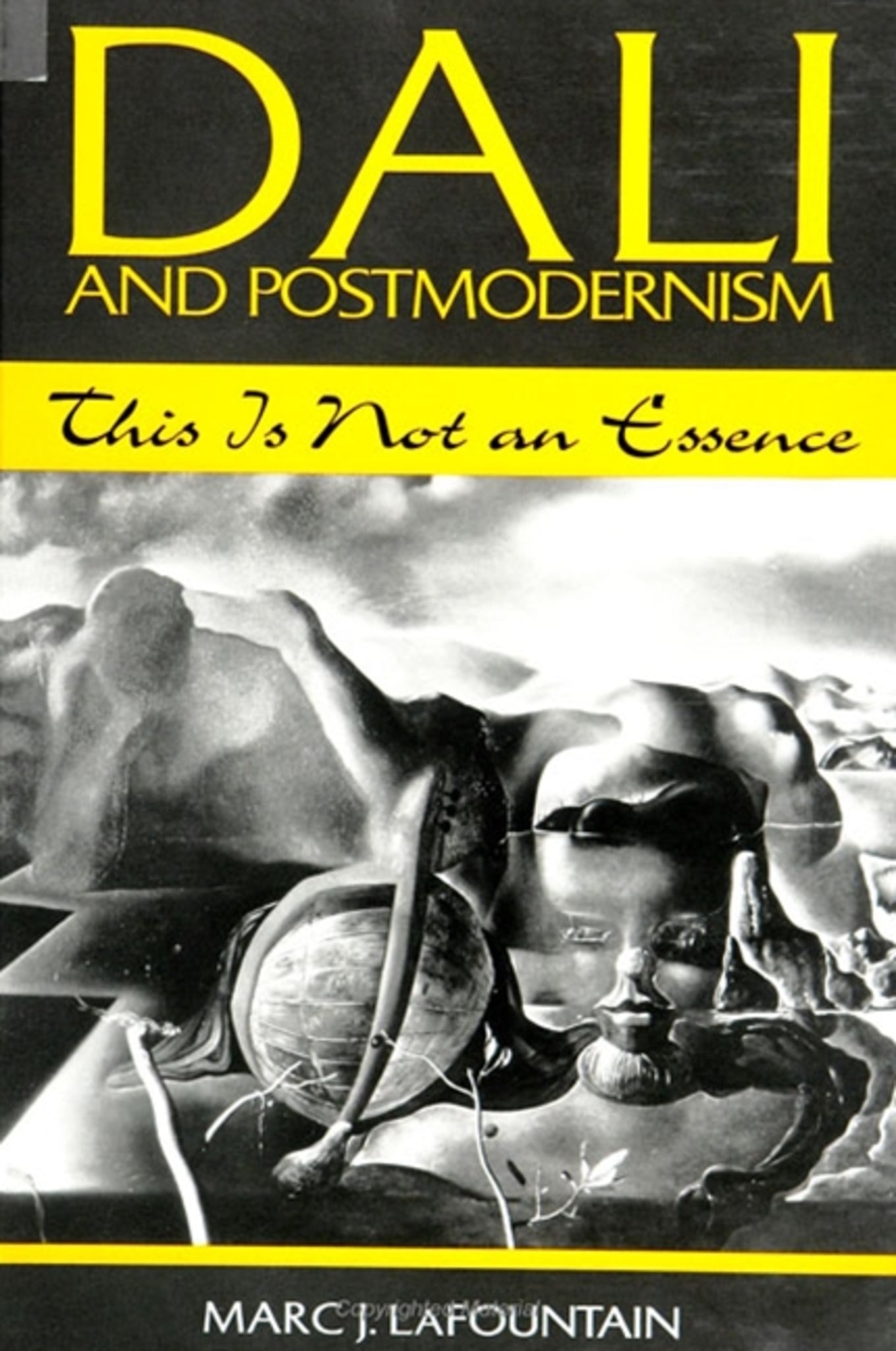We're sorry. An error has occurred
Please cancel or retry.
Dali and Postmodernism

Some error occured while loading the Quick View. Please close the Quick View and try reloading the page.
Couldn't load pickup availability
- Format:
-
25 April 1997

Demonstrates that Dali's Surrealism anticipates postmodern tactics, and inaugurates "New Dali Studies" by offering an original interpretation of his relationship with the Surrealist canon.
By taking Dali's "paranoiac-critical method" to the delirious extents Dali himself recommended, LaFountain demonstrates that Dali's Surrealism anticipates tactics practiced by postmodern and poststructural critics. In particular, LaFountain advances the notion that "phantom meaning" displaced Surrealism's "phantom object," thereby creating a crisis of the subject and the object far in excess of that sought by Surrealist revolutionaries. Focusing on Dali's magnificent painting, Endless Enigma, LaFountain inaugurates "New Dali Studies" by offering an original interpretation of Dali's close, yet strained, relationship with André Breton and the Surrealist canon.


"The text itself transcends the personal/historical narrative of Dali and Breton and engages in a debate that still rages about subjectivity, identity, agency, knowledge, autonomy, coherence, order, transformation and liberation, alterity, representation, abstraction, essences, and meaning. Connections made for instance between what Bataille and Blanchot are up to in their writings and what Dali is up to in his paintings open up new vistas in our understanding of both modernity and postmodernity. The lucid and energetic presentation of Dali as a posthumanist amid Surrealism's late modernist project reverberates within our present 'culture wars,' foundationalists vs. antifoundationalists, essentialists vs. antiessentialists. This is very much a re-reading that makes no pretenses regarding its present world connections." — Joseph Natoli, Michigan State University
"The author does a good job of placing Dali's theory-practice in the context not only of Surrealistic practices, but also of the dialectical method of Hegel and the phenomenological reduction theorized by Husserl. This discussion is detailed and insightful, bringing together in an original way the parallel operations of abstraction applied within philosophy and aesthetics. It is illuminating to juxtapose the abstractive tendencies in the arts of the period with the transcendental logics of the philosophers. This discussion is interesting for its own sake, and the author also extends it to clarify Dali's position in the controversies surrounding the history of Surrealism—his relation to Breton's version of Surrealism, Bataille, et al." — Gregory L. Ulmer, University of Florida
Preface
Notes for "New Dali Studies"
Acknowledgments
Introduction
Con-fusion and R(h)umors of Meaning
1. Openings, Scenes: Irreality, Surreality, Altereality
2. The Stinking Essence
3. Intermezzo: The Rhizomatic Hystericization of Symbol and Point
4. Phantom Meaning
5. X: Who's? Ethics, and Disaster
Notes
Index



